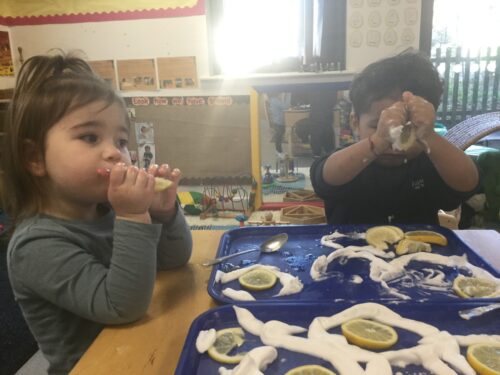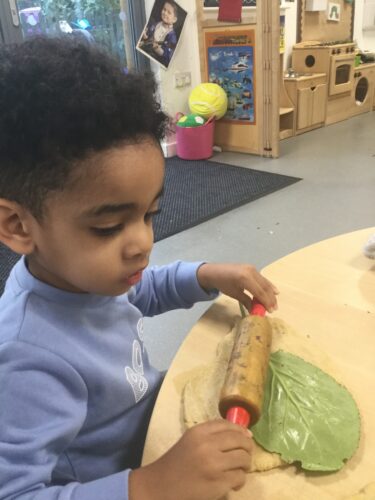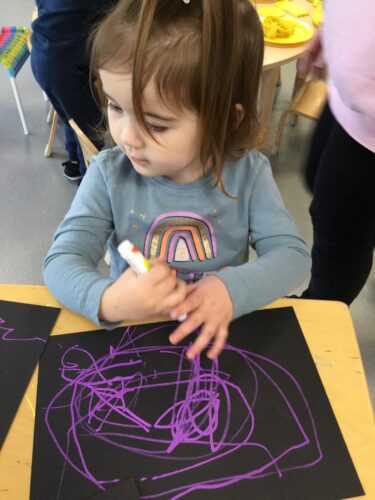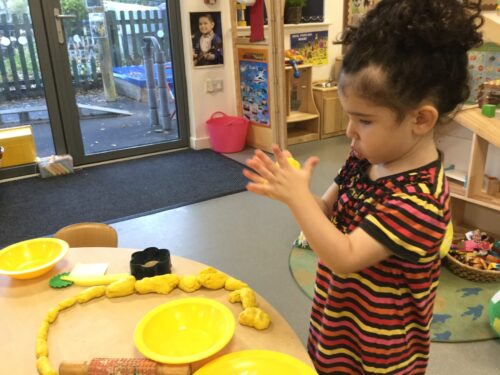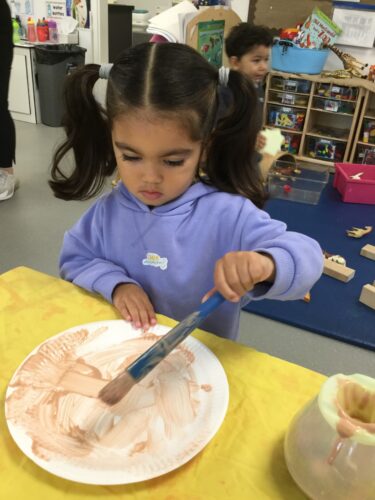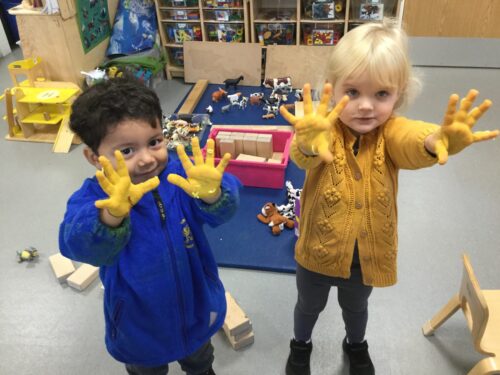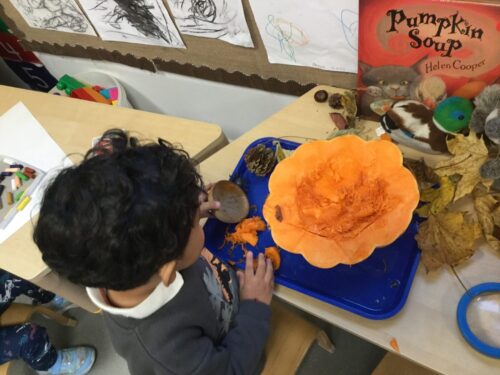Sensory play is a valuable way of engaging children in activities that will heighten their senses and enrich their learning. Engaging a child in sensory play helps strengthen their brain development for learning, which enhances their memory and ability to complete more complex learning tasks. Sensory play helps children learn new ways of talking about the world. It supports their language development and encourages them to communicate effectively with others whilst playing.
Children identify objects by touch during tactile sensory play, which helps them develop their fine and gross motor skills such as squeezing, pulling, pushing and throwing. By experimenting with different objects, children develop problem-solving skills and decision-making skills. They begin to find solutions to obstacles they come across – such as ‘how to make sand stick together’.
Sensory play supports a child’s cognitive growth; enhancing their thought process, understanding and reasoning. As children manipulate new materials, they learn to understand new concepts – such as ‘sink and float’. Using interactive resources help develop a child’s cognitive hand and eye coordination. They begin to share their ideas and build new relationships. Children become more self-aware and body-aware, which helps them develop a better sense of space around them.

